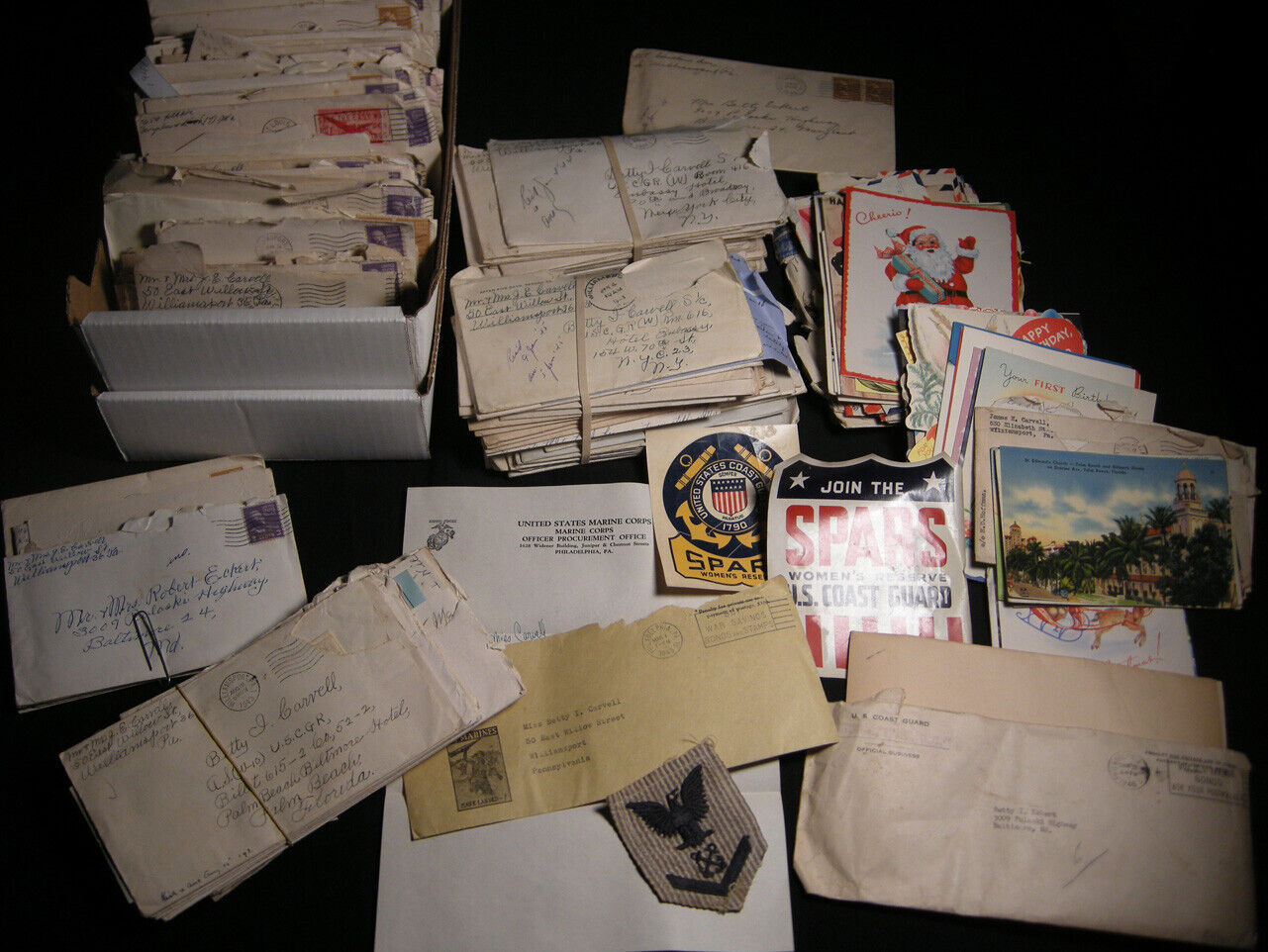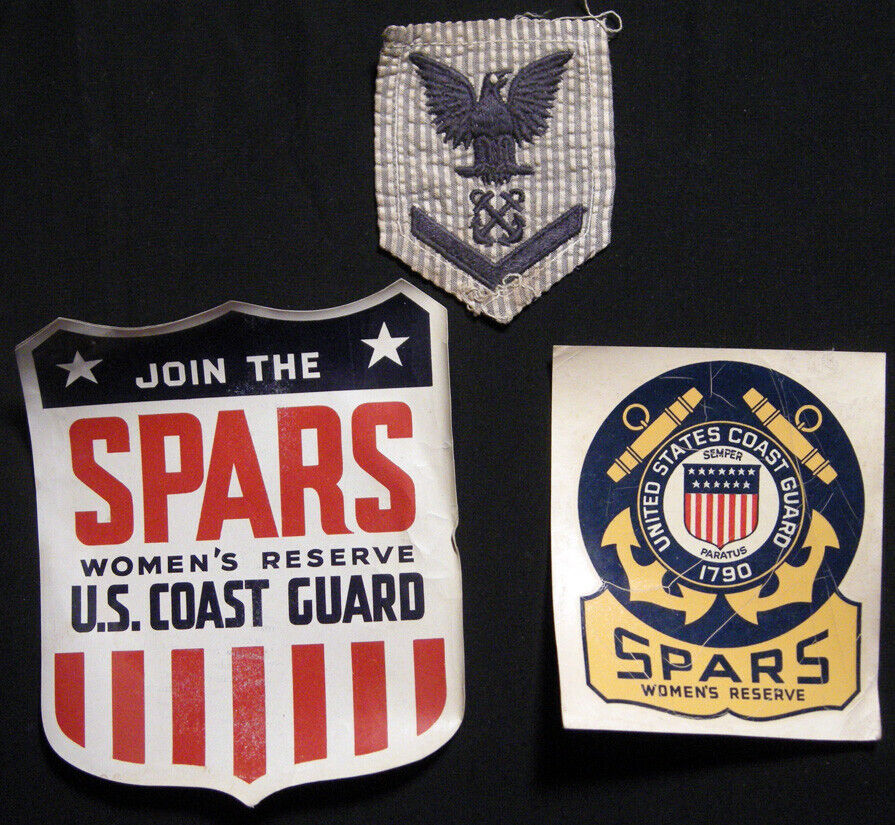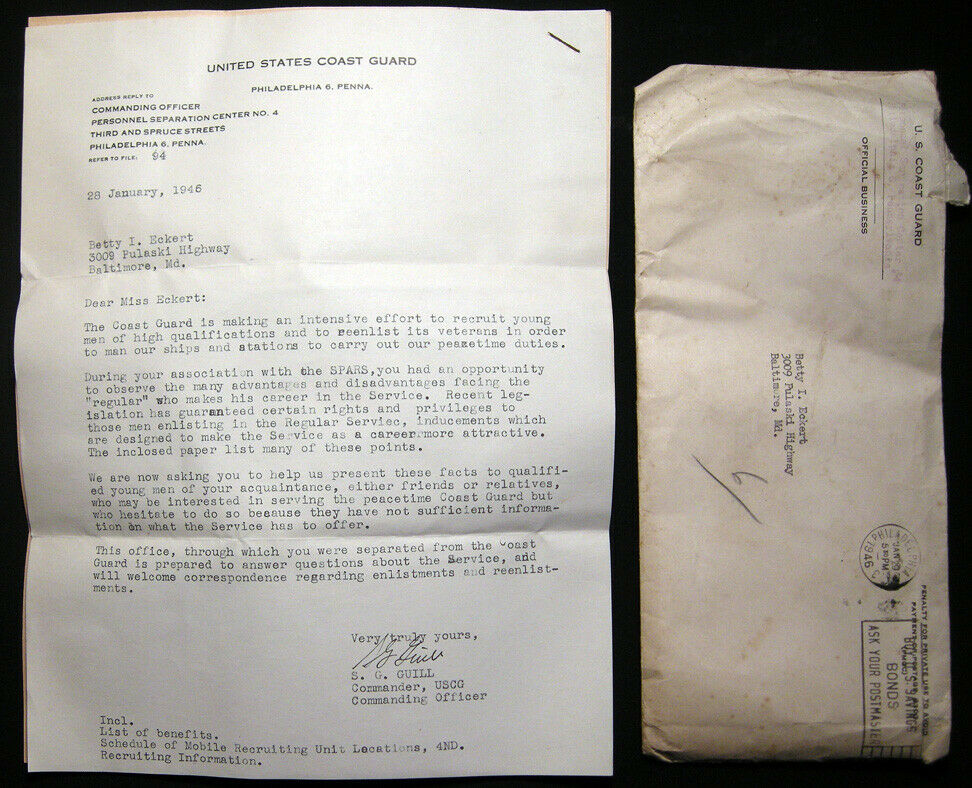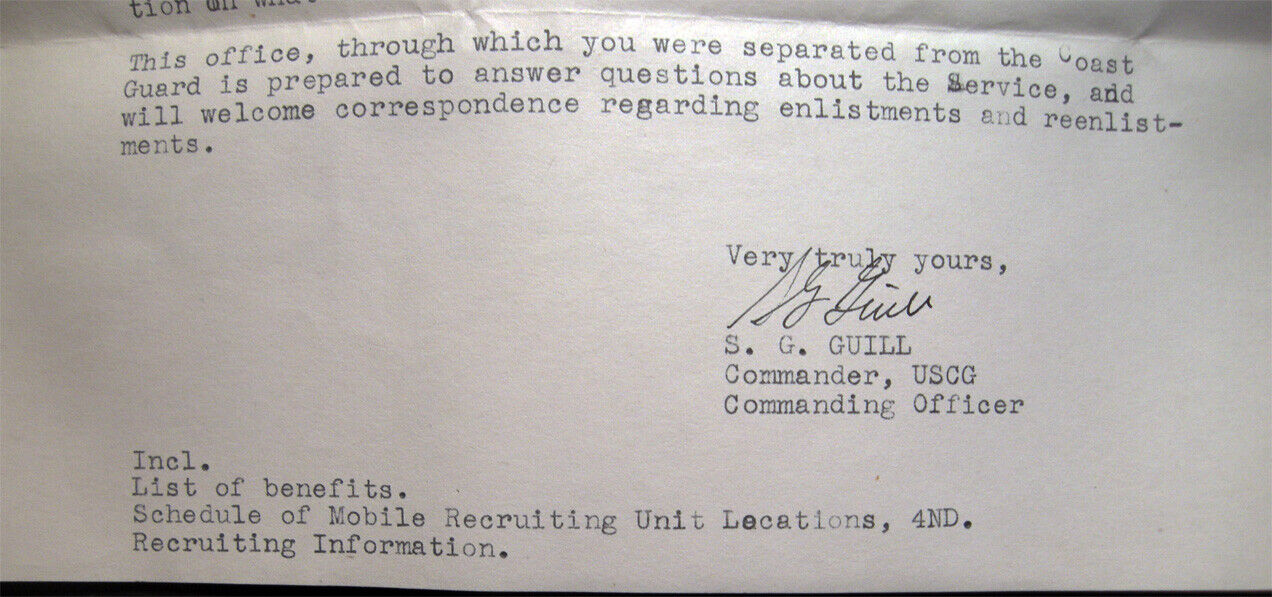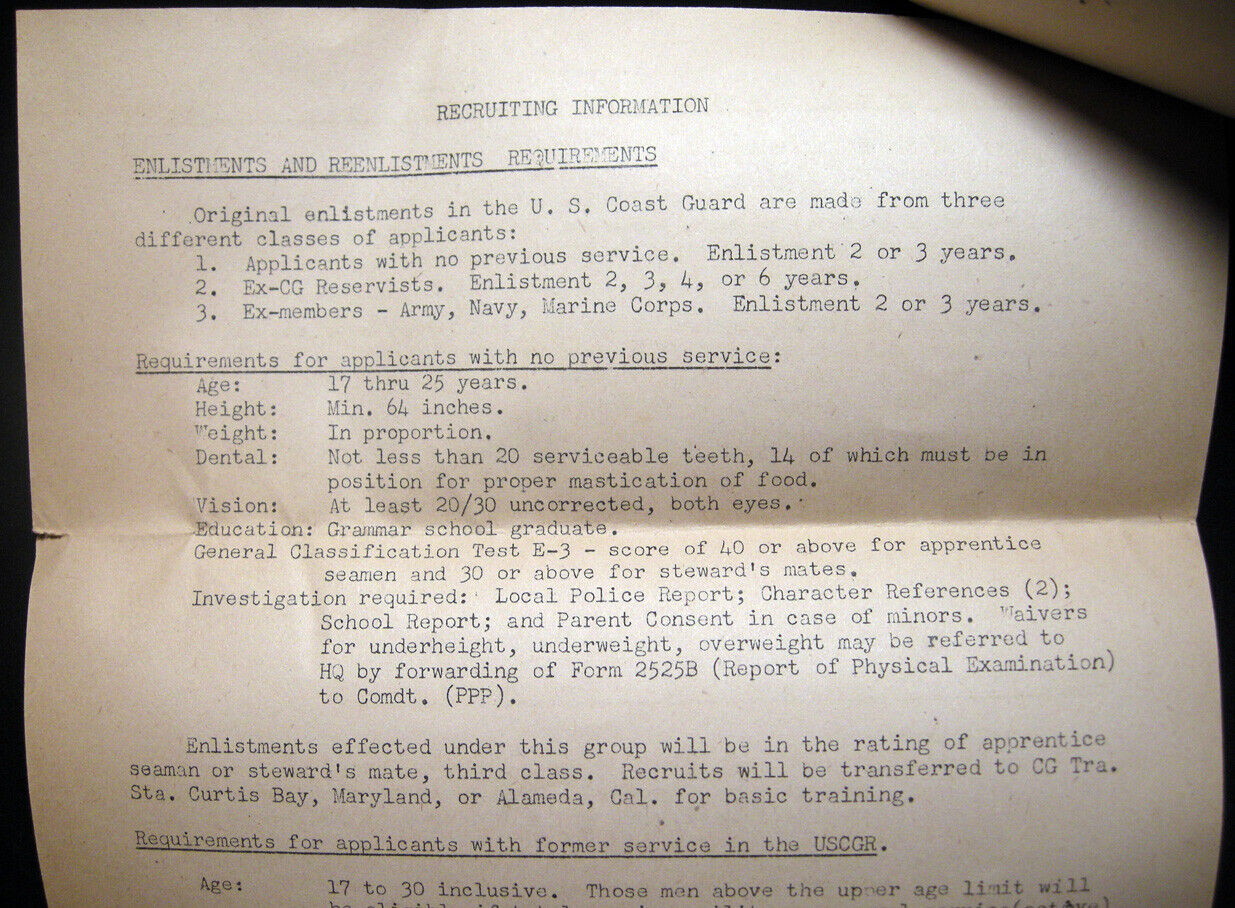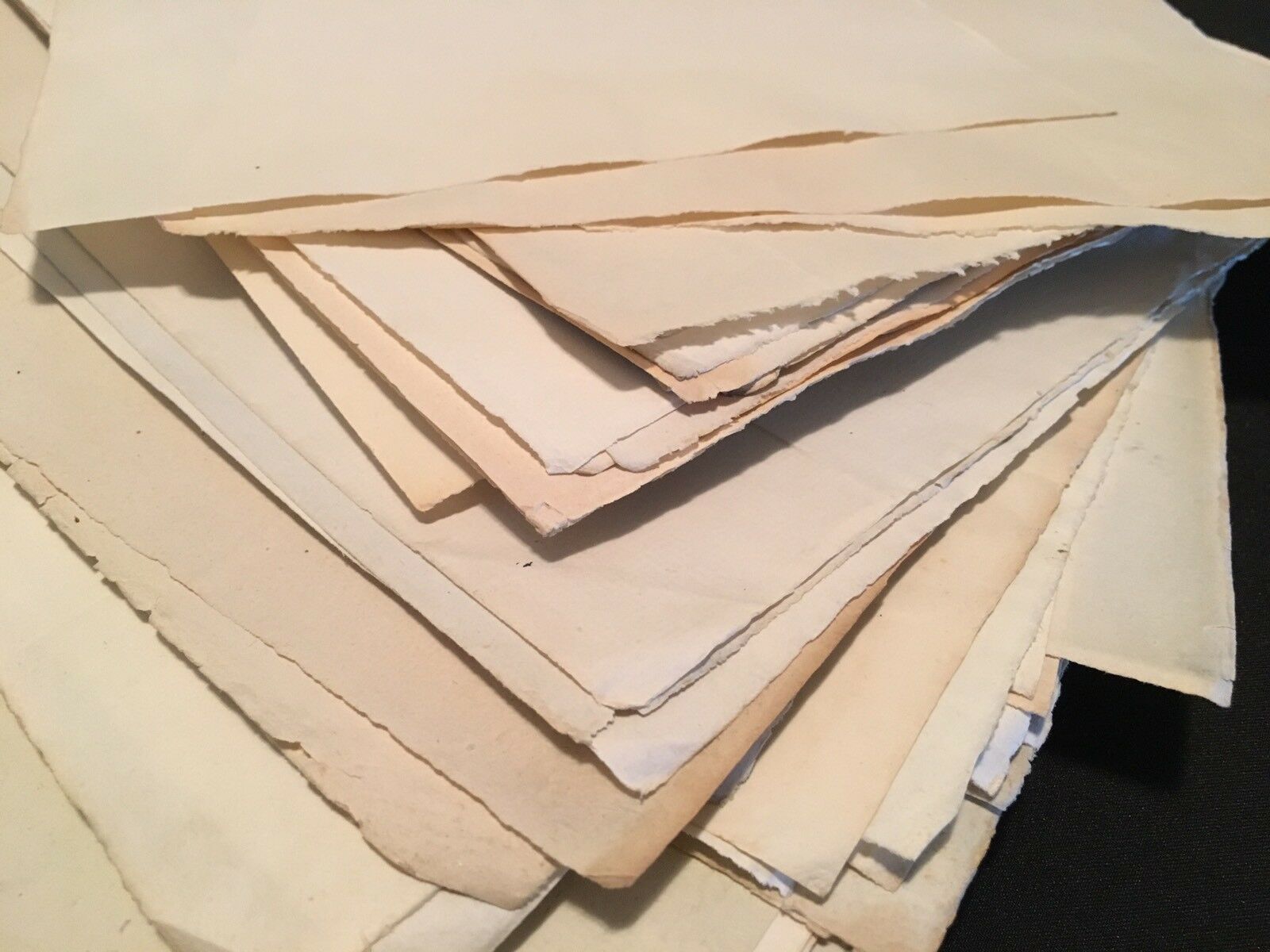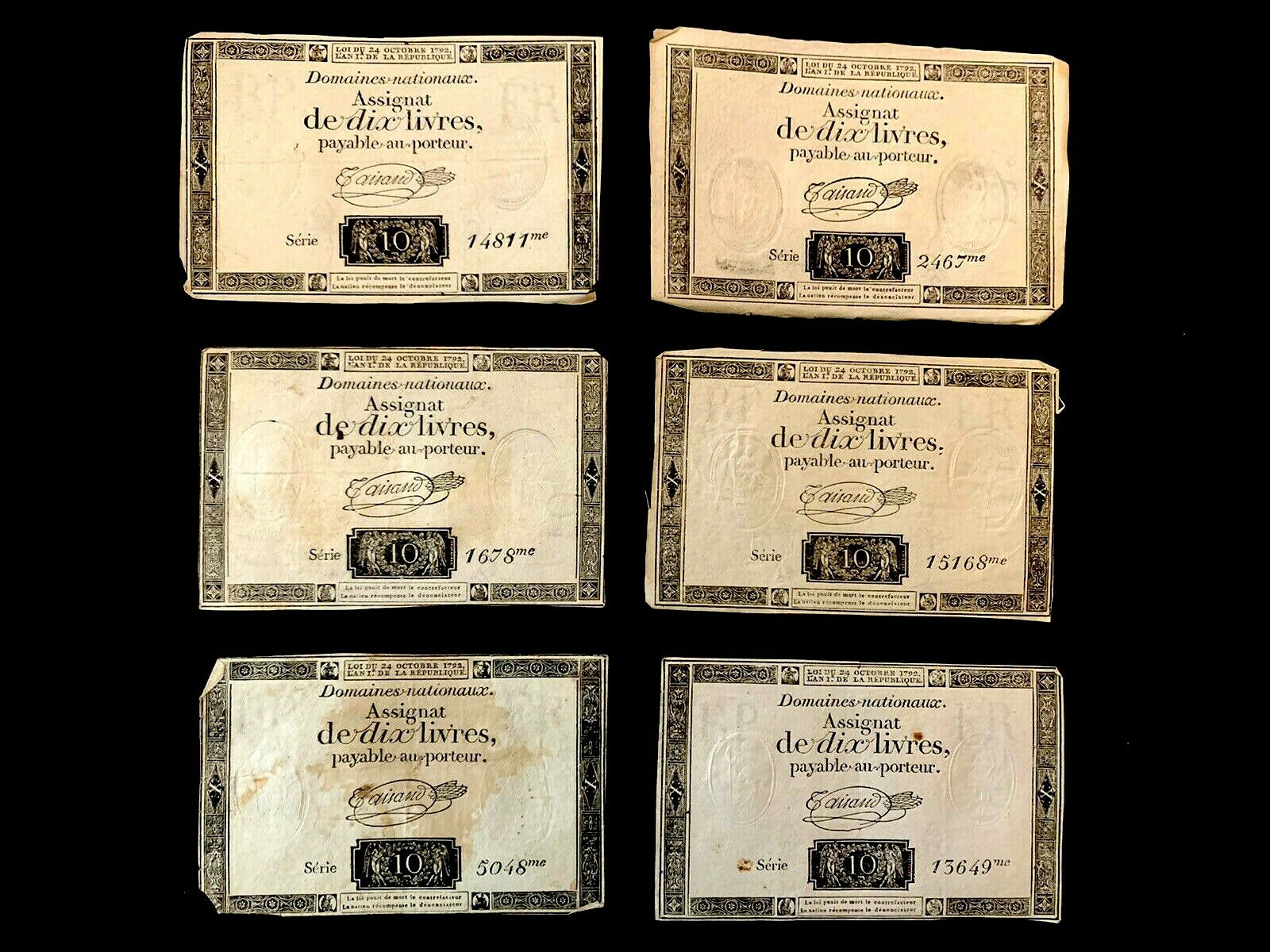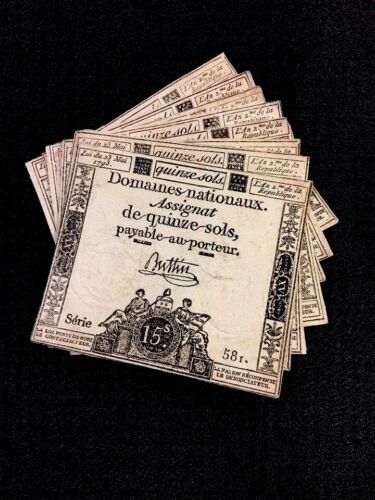-40%
1943 - 1953 LARGE COLLECTION LETTERS TO WWII SPARS COAST GUARD WOMAN & EPHEMERA
$ 250.8
- Description
- Size Guide
Description
[26376] (Americana - 20th Century - Manuscript - WWII - Home Front - Pennsylvania).
1943 - 1953 Collection of Letters, Greeting Cards, Including Ephemeral Materials, Written to a Woman Veteran of the WWII Coast Guard SPARS
Over 300 individual pieces of correspondence, sent to Betty I. Carvell, later Eckert, mostly from her parents and with a few from friends.
A few of the letters are from women who served with her in the SPARS, the women’s branch of the U.S. Coast Guard Reserve, established in 1942. Ms. (Carvell) Eckert’s service career is documented by her mailing addresses: March of 1943 she attempted to join the USMC (there is an official letter from their office requesting information); by August she is a A.S. (W-10) billeted at the USCG women’s training facility at the Palm Beach Biltmore Hotel, Florida; becomes S 2/c, advances to S 1/c and finally addressing her as Cox(swain). Her living & working “barracks” address throughout 1944-45 was at the Embassy Hotel 154 W 70
th
Street, NY. According to the official site, 978 women officers and 11,868 enlisted women served in the SPARs during World War II.
Most letters are from her parents in Williamsport, Pennsylvania. They usually consist of a letter each from father & mother and detail the vicissitudes of living in poverty, their continuous and debilitating ill-health and their nearby relations and the struggle of finding work; having to buy expensive medicines required for their numerous maladies: rheumatism, pneumonia, high blood pressure, sciatica, nearly constant colds and bed-ridden bouts of collapse from various causes. Several letters written by the father go into great detail concerning meals that they occasionally are bought or can afford – the most basic of foods and preparation are appreciated as great important feasts. Occasionally having mashed potatoes are noteworthy as a luxurious culinary event.
Local news is of great importance to Ms. Carvell, who asked for the 2 Williamsport newspapers to be sent. Her parents are so poor they have to ask for money from their daughter to pay for the newspapers, use the phone to call her and pay their rent as they move from place to place in the town.
The father’s writing is fairly literate and well-composed; the mother’s is at an early grammar school level and still legible. Content includes local gossip, neighborly strife and griping, along with church, school and other news regarding the town. During and after wartime, there are concerns about brownouts due to the coal shortage, worries about another war and labor & strike fears. A couple of elderly aunts run a shop, rent out rooms and work until they die.
At one point, while still in the USCG, Betty marries Robert Eckert and moves to Baltimore. Her parents are so poor they can’t afford to attend. She also has a friend in Sheffield, England who writes several letters to her over the years, describing a pitiless, tedious, overworked life; a hard pregnancy; sick, blind, burned, bruised children, the telling of which hints at parental abuse; the injuries, while severe are always reported as ‘accidental’ because the children are ‘clumsy.’ The post-war situation in England is rife with poverty; the most basic amenities are scarce. It was worth reporting that someone had traveled and been able to gain 4 pounds due to better nutrition possibilities and who promptly lost on return to the daily grind.
Many of the greeting cards for holidays or personal events are sent unsigned. Also, Betty’s mom invariably signs her letters “Mother Carvell” not Mom or Mother; as if she may have been an adoptive parent; her father is always simply signed ‘Dad’.
A few SPARS-related items include a couple of decals and a one-stripe shoulder patch; also an official letter asking her to promote others to join the Coast Guard after her service commitment, with guidelines for prospects & requirements for enlistment.
There are a couple of dozen loose greeting cards and loose (empty) envelopes (some of which may belong to the cards). There are a few news-clippings related to Williamsport news, a letter from France from a service friend with a one-franc coin taped-in and some Methodist church bulletin ephemera from the town.
Condition: For convenience, the letters have been chronologically grouped by year and we will ship them thus. The first few years’ envelopes are lacking stamps, as Betty’s father was collecting them; later years have their stamps & cancellations intact. Some soiling, wear & tear to the envelopes; everything in very good condition.
The content portrays small-town Pennsylvania American life in the 1940s and early 1950s, the importance of family support and connection in the face of economic uncertainty, ill-health and the struggle to start, support and maintain families at all stages of life, especially for women.
